Greek Easter traditions are deeply rooted in the Greek Orthodox Church and celebrated with great enthusiasm. From the 40 days of fasting to the Holy Week preparations, unique customs and practices mark this festive period. Let's explore some of the most intriguing and delightful Greek Easter traditions that have been passed down over the years.

CONTENTS
I'm among the luckiest people when celebrating Easter here in Australia! Depending on the moon, I enjoy chocolate Easter eggs and hot cross buns one week and experience the rich culinary traditions of Greek Orthodox Easter the other week!
Orthodox Easter dates
Did you know?
Unlike the Western Christian Easter, which follows the Gregorian calendar, Orthodox Easter is determined by the Julian calendar and often falls on a different date.
Full details here.
Easter time, or "Pascha", is quite chaotic in a Greek household - to put it mildly.
Jokes aside, Greek Orthodox Easter is not just another holiday. It's one of the most unique and vibrant celebrations in Greece, deeply rooted in the traditions of the Greek Orthodox Church.
Lent and Clean Monday
Lent, the 40 days of fasting in Christianity, begins with Clean Monday (Καθαρά Δευτέρα).
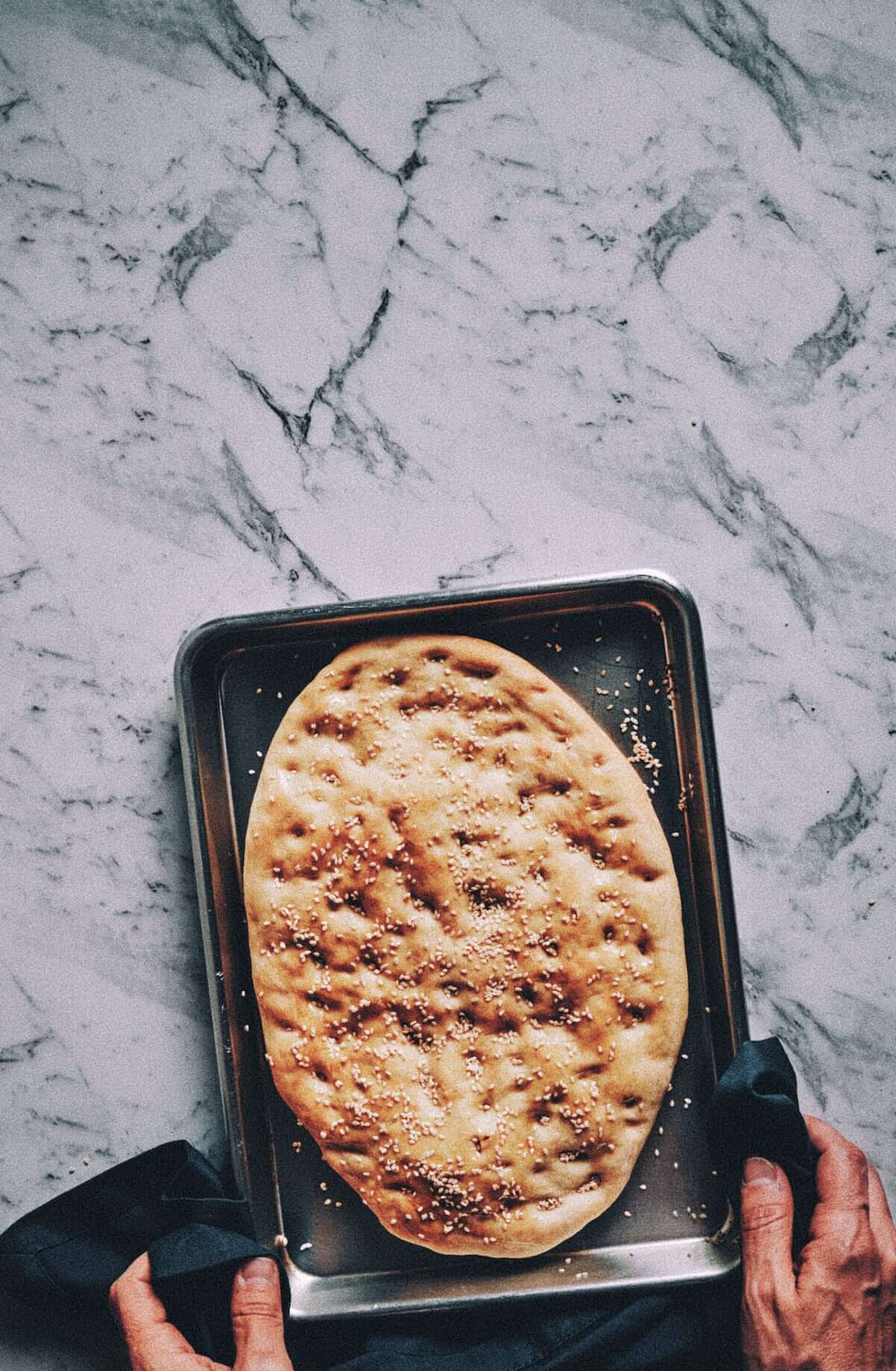
We celebrate this day by indulging with lagana (a flatbread made with sesame seeds), taramasalata (a Greek fish roe dip), and halva ( a delicious, sweet semolina pudding made with olive oil and spices).
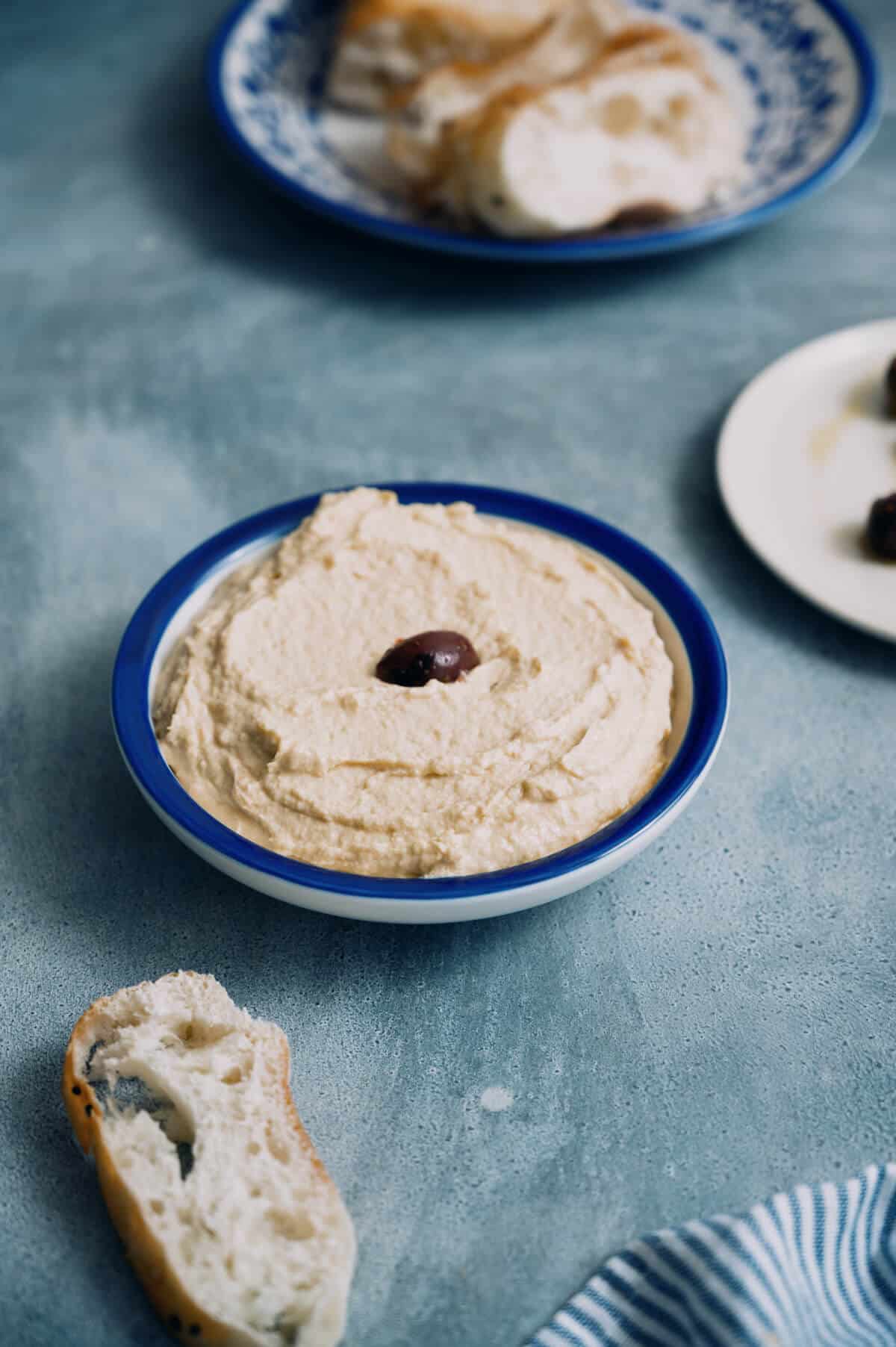
Fasting during Lent - the Greek way
- The Lenten period leading up to Greek Orthodox Easter is known as "Sarakosti".
- Fasting is only sometimes about the food. It also sets the tone for spiritual reflection.
- NO meat or dairy products or animal-based products.
- Shellfish, squid, mussels and octopus are allowed as exceptions because they do not draw blood and do not have a backbone.
- Olive oil is restricted; however, in recent times, people will limit it to "Clean Monday" and "Good Friday".

Greek Lenten recipes
If you're fasting - enjoy these delicious Greek Lenten recipes
Holy Week and Preparations
The week leading up to Easter Sunday is known as Holy Week - this also marks the final week of Lent.
It begins with Palm Sunday. On this particular day fish is allowed to be consumed along with with wine.
A typical menu for Palm Sunday consists of fried cod (known in Greek as "bakaliaro") and this served with skordalia (greek garlic mashed potatoes) along with boiled beets and wild greens.
I tend to opt for a "psarosoupa" - a Greek fish soup.
Preparations are underway to celebrate the big day, with cookies, tsoureki (Greek easter bread) and eggs dyed crimson red being made.
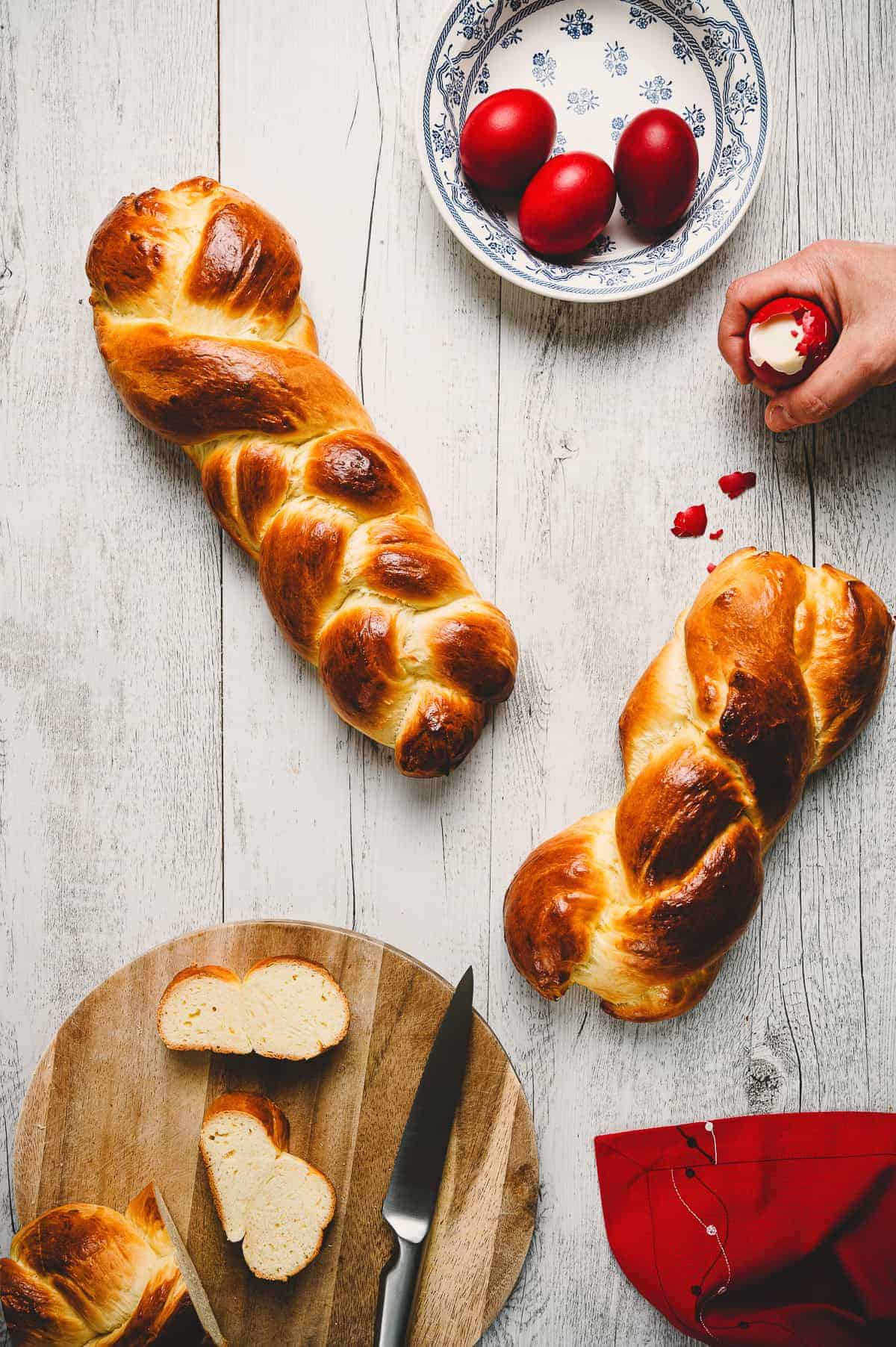
And let's remember the lamb!
It takes an army of Greek soldiers to prepare it (you must put your orders weeks in advance!)
Days before, it marinates in a secret herb mixture while waiting to be spit-roasted and enjoyed at Easter lunch.
If you're a carnivore, there's no better way to celebrate!
(I can't fit a spit in my apartment 🤣, but I have you covered with a traditional Greek roast lamb recipe and roasted Greek potatoes).
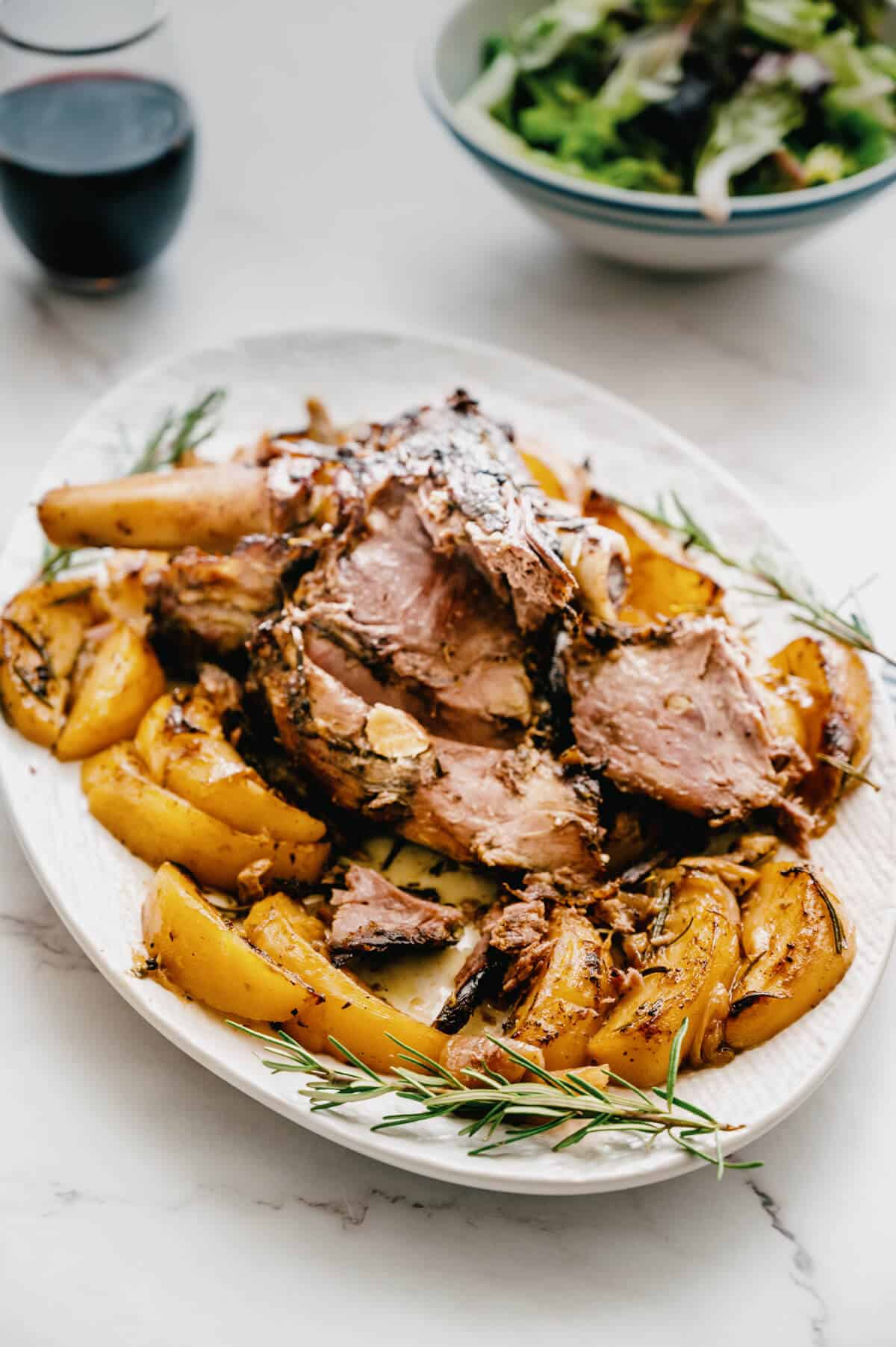
Greek Easter traditions
People often ask me, "Did you fast for 40 days?"
And I always answer with "kind of...".
For myself, it's more about the food and the rituals associated with this Symbolic Day and about the anticipation, excitement and enjoyment with family.
You'll know what I mean if you've ever grown up in a Greek family. For us Greeks, the lead-up to Easter is not just electrifying. It's a time filled with anticipation, excitement, and joy!
Greek Orthodox Easter continues many traditions and customs passed down over the years.
Some people fast for the entire forty days of Lent, allowing themselves to "clean" their minds and bodies.
As a child, I was not too keen on fasting, but I was always thankful for the rewards.
The rewards were often "koulouriakia".
These buttery morsels of goodness are unique during this festive period - always, no questions asked. (Not making them during this time would be criminal!).
Every household has a recipe, sharing it between friends and relatives.
Traditionally, koulouriakia use butter, but I have seen versions of these cookies made with olive oil and some with ouzo.
They are perfect for dunking in Greek coffee, and to this day, I still make a version of these at least once a month. I adore them that much!
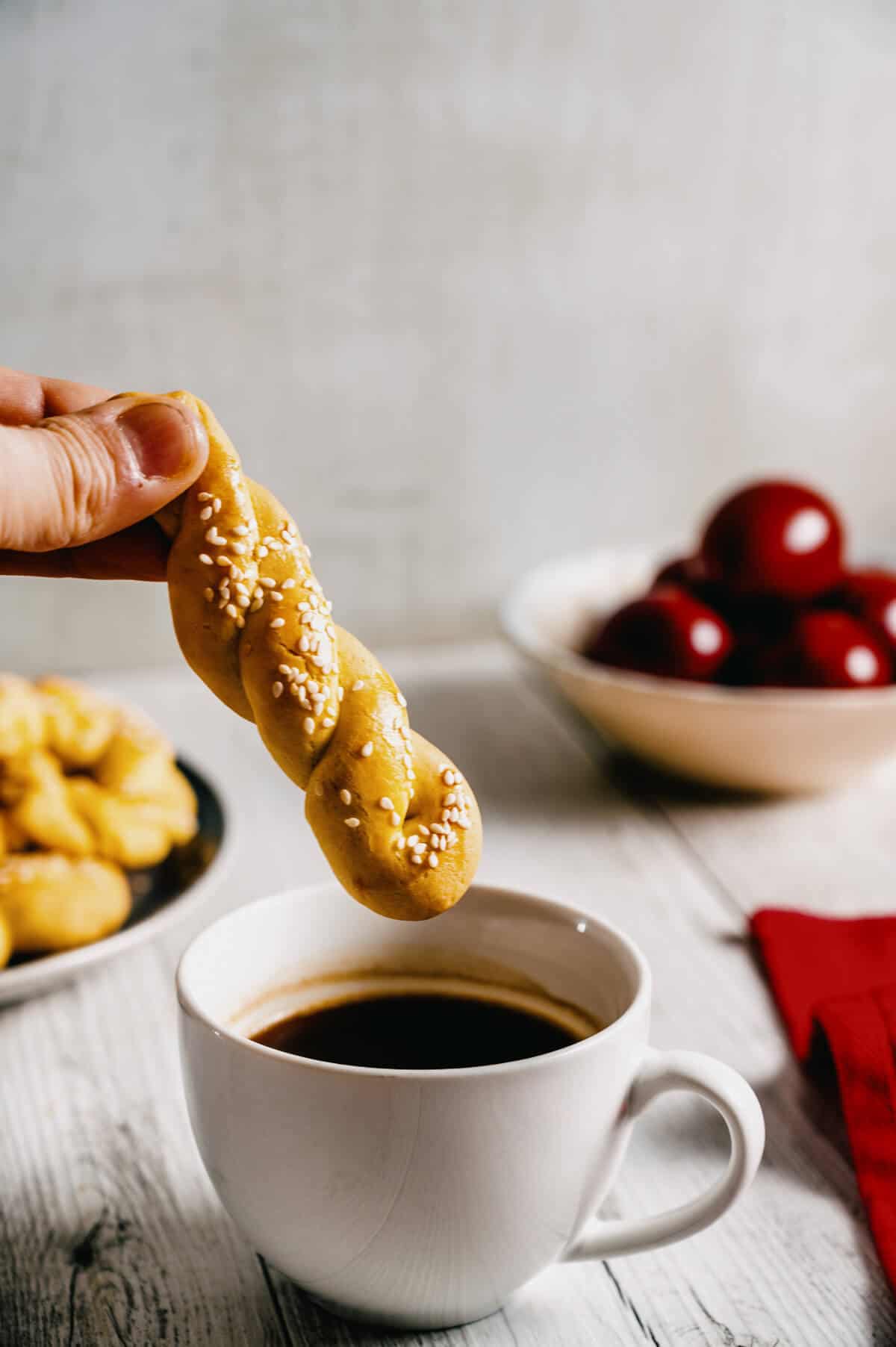
Holy Saturday and Resurrection Celebrations
On Easter Eve, we participate in a solemn yet joyous tradition. We gather at the church around midnight to obtain the 'Holy Light', a flame that symbolizes the Resurrection of Christ. We walk back home with great care, ensuring the flame does not blow out, marking the beginning of our Easter celebrations.
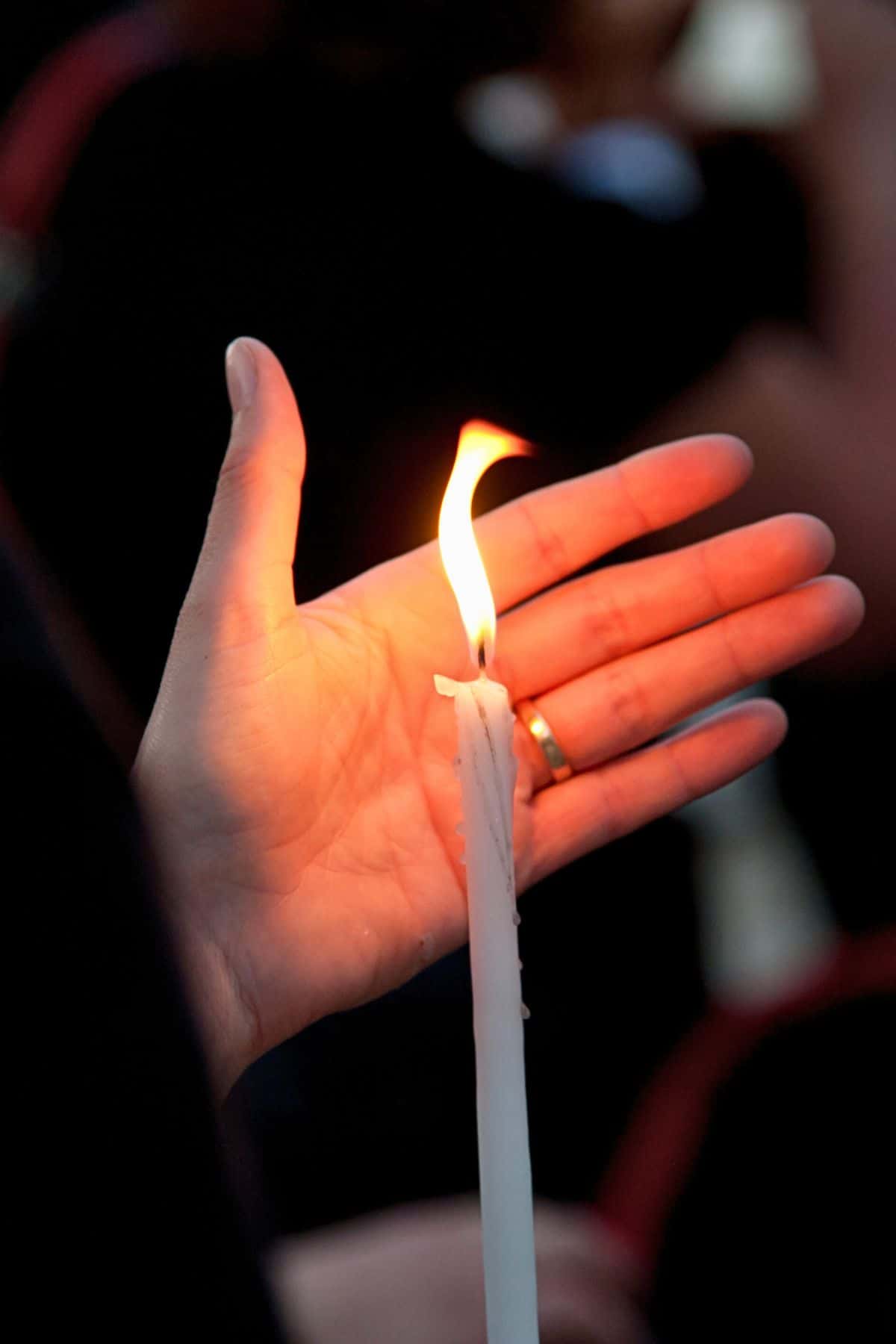
It was then time to break the fast with "mageritsa" - a traditional soup made with lamb offal and intestines. (Yes, it sounds ghastly, but the offal is cleaned many times to remove any odour, cooked in a mixture of herbs and spices, and finished with avgolemono.)
Next, we would enjoy all the fruits of our mother's labour! It was time to taste the koulourakia, slice up the tsoureki, and play the "Greek Easter egg cracking" game!
It's hard to pick just one thing I like about Greek Easter traditions, but if I had to choose, it would have to be the Greek version of Easter eggs.
Friends were often puzzled by these as they contained no chocolate!
Greek Easter eggs are a symbol of this festive season. Being springtime and following the Northern Hemisphere calendar, they were a symbol of rebirth and new beginnings. It is also believed that their colour is symbolic of the blood of Christ.
Eggs are boiled and dyed red, then polished with extra virgin olive oil to make them shine. Although people choose to dye their eggs in various colours and designs, red is always the proper colour for Easter - in my opinion.
We play a game where everyone cracks the red eggs against each other! It's a lot of fun, and the person who successfully cracks the eggs of the other players is declared the winner and, it is said, will have good luck during the year.
Oh, how I looked forward to this game! I thought there was a "secret" to it, but I have often been proven wrong.

The Easter Greeting
The exchange of the Easter greeting is not just a tradition; it's a defining moment of Greek Easter joy and fellowship. Following the Priest's proclamation of the Resurrection of Jesus Christ, the church bells chime loudly and people turn to one another to say "Christos anesti" (Christ is risen), to which the response is "Alithos anesti" (Truly He is risen).


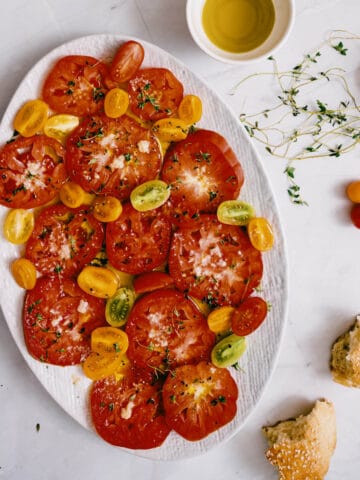
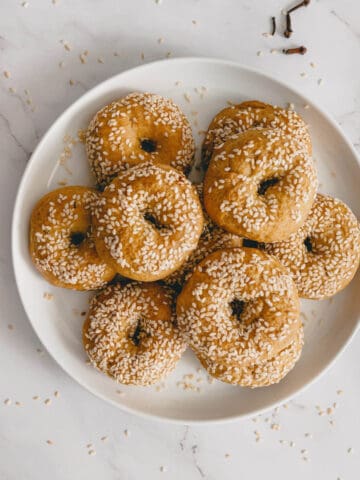
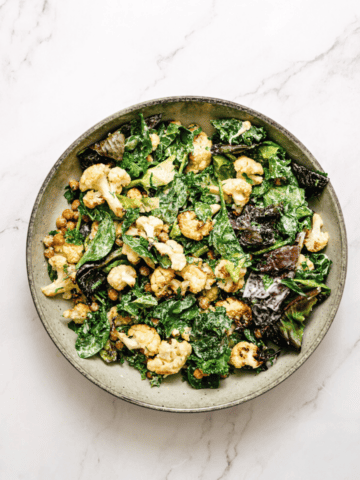
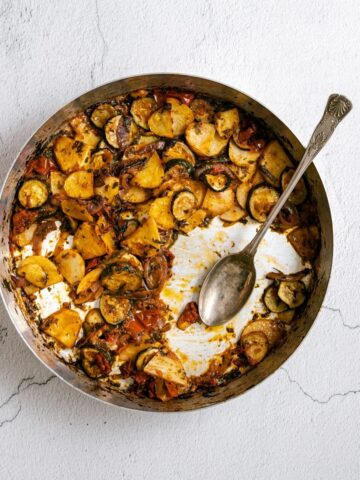
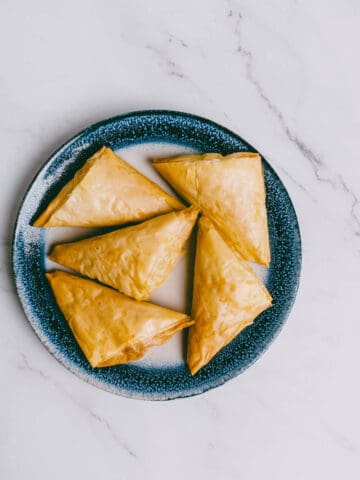
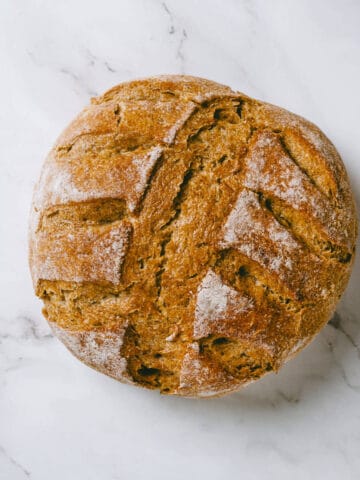
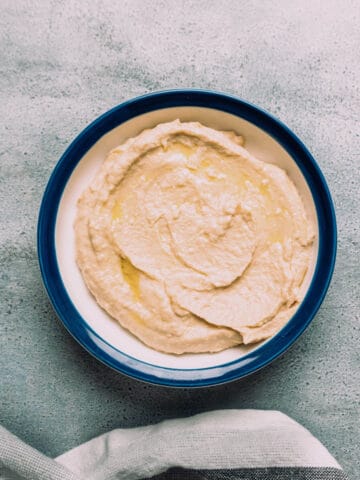
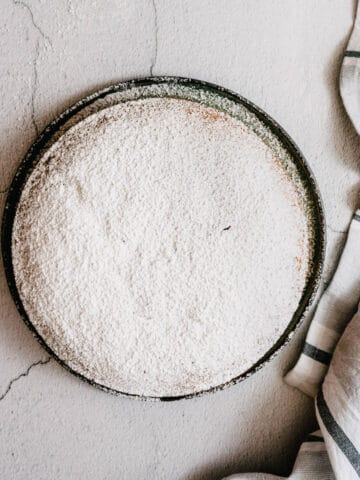
Leave a Reply